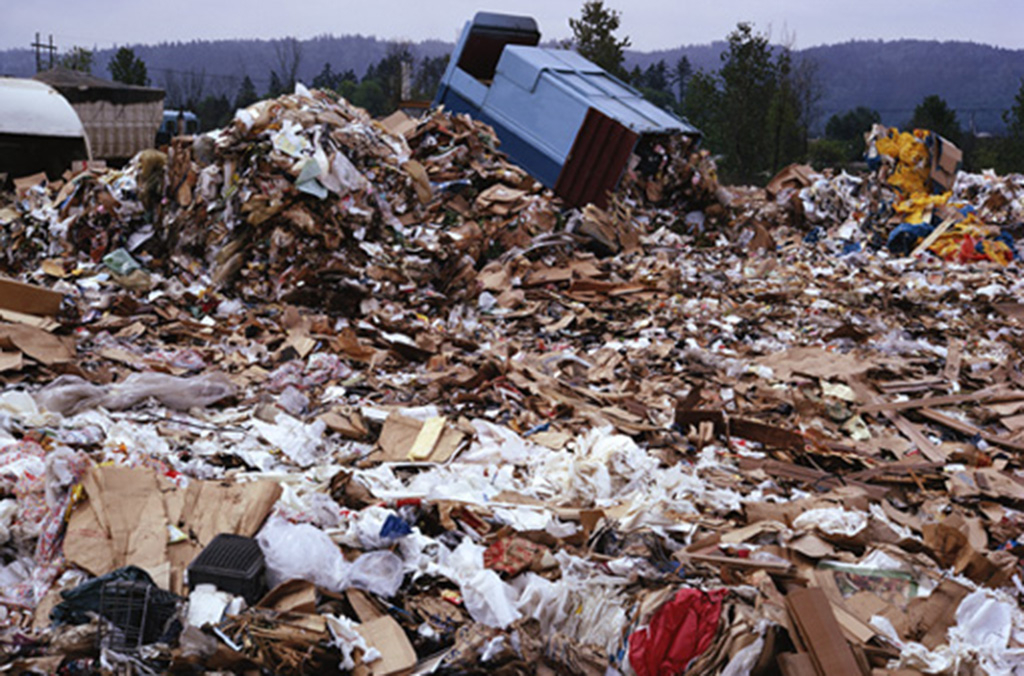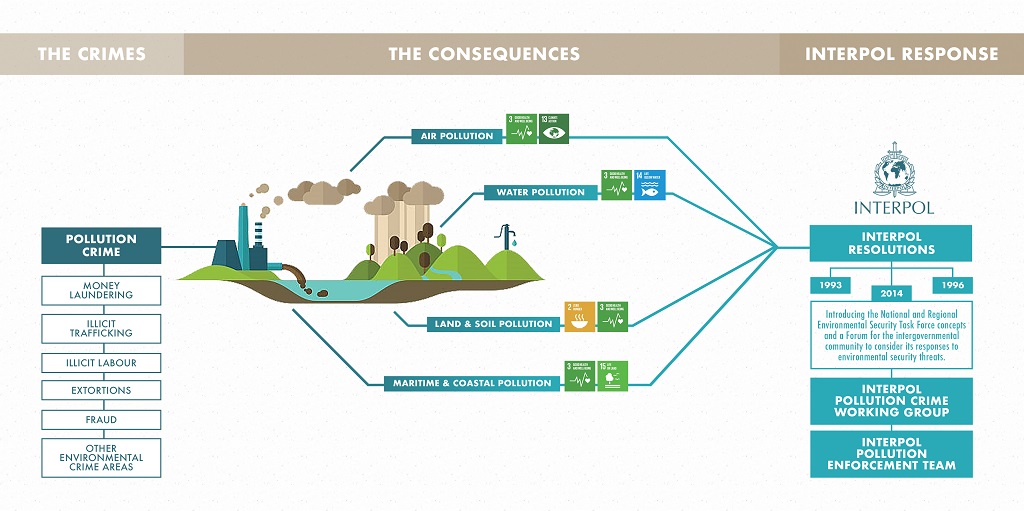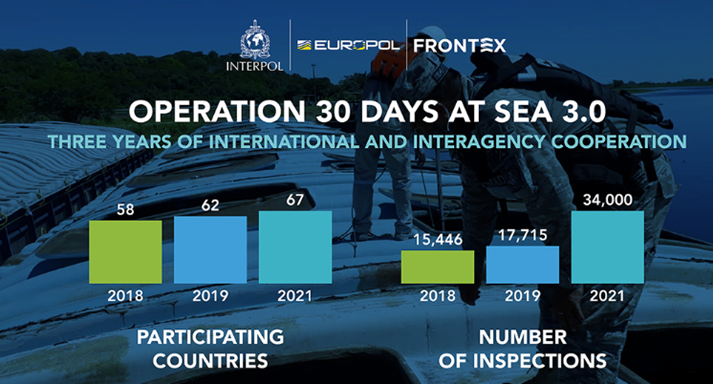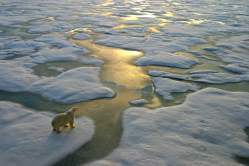The issues
Pollution crimes impact our health and safety on a daily basis.
- The use of illegal chemicals in oil blending compromises the quality of the air we breathe;
- Mercury illegally released from illegal mining into rivers and the sea endangers ecosystems and water supplies;
- Waste illegally dumped in landfill sites contaminates the soil where food is grown.
As a consequence, pollution crimes threaten environmental sustainability, public health, safety and the quality of life.

Pollution crimes take various forms, such as waste crime, marine pollution crime, illicit trafficking in chemicals and carbon trading crime. Illegal mining activities also create severe pollution issues, due to the chemicals and machinery used.
As with any other type of environmental crime, pollution crime is primarily driven by a high-reward, low-risk business model, where criminals exploit regional inequalities such as labour costs, weak environmental legislation and law enforcement capacity. These global inequalities create criminal opportunities for hazardous substances to be illegally trafficked between countries and/or illegally disposed on land, in rivers or at sea, to cut costs or gain profit.
Organized crime has been found to be involved in several cases of pollution crime, converging with other crime types such as theft, human trafficking, fraud, drugs and firearms trafficking, and money laundering. Transnational and cross-over offences are also linked to pollution crimes, requiring a coordinated law enforcement response, both at the national level (inter-agency cooperation) and internationally.
Our response
INTERPOL’s Environmental Security Programme works with agencies in our member countries to prevent, detect and disrupt pollution crimes and dismantle the groups behind them. INTERPOL intelligence-led operations, training and capacity building help law enforcement bring down criminal polluters.
The United Nations Sustainable Development Goals are a universal call to end poverty, protect the planet and ensure that all people enjoy peace and prosperity. Our international response is actively contributing to achieving these goals.
Many of the goals concern environmental security, including Goal 2 – Zero Hunger, Goal 3 – Good Health and Wellbeing, Goal 13 – Climate Action, Goal 14 – Life Below Water, and Goal 15 – Life on Land.

Recent and ongoing initiatives
Project Gaia
Within the framework of the project Fighting Climate Change and Loss of Biodiversity, otherwise known as Project GAIA, supported by the German Federal Ministry for the Environment, Climate Action, Nature Conservation and Nuclear Safety; INTERPOL is providing mentoring and capacity building to member countries to strengthen law enforcement capabilities to detect and investigate pollution and associated crimes.
The work conducted also promotes increased criminal intelligence collection and exchange, supporting member countries to enhance their transnational investigations and dismantle organised criminal networks operating across borders.
See more on Project Gaia.
Operation - 30 Days at Sea
INTERPOL has led a series of global enforcement operations against pollution crime under its 30 Days at Sea initiative. The 2018 edition, which was the world’s first global marine pollution enforcement operation, engaged 276 agencies across 58 countries, uncovering more than 1,500 pollution offences from over 15,000 inspections, and initiating nearly 700 investigations.
Subsequent editions delivered even greater impact: 30 Days at Sea 2.0 (2019) exposed 3,789 offences from over 17,700 inspections, identifying 147 individuals, 401 companies, and resulting in 18 arrests. Meanwhile, 30 Days at Sea 3.0 (2020–21) featured an expanded intelligence-led approach and scope (encompassing land, river, coastal, and marine pollution), involving 300 agencies in 67 countries and conducting 34,000 inspections, revealing more than 1,600 pollution offences.

Strategic Report: The Nexus between Organized Crime and Pollution Crime”
The INTERPOL report The Nexus between Organized Crime and Pollution Crime, published in 2022 (see Related Documents below), analyses the convergence between certain organized crime activities and pollution crime, with the objective to support law enforcement agencies in member countries to improve their response. This report was produced with the support of the Norwegian Agency for Development Cooperation (NORAD).






